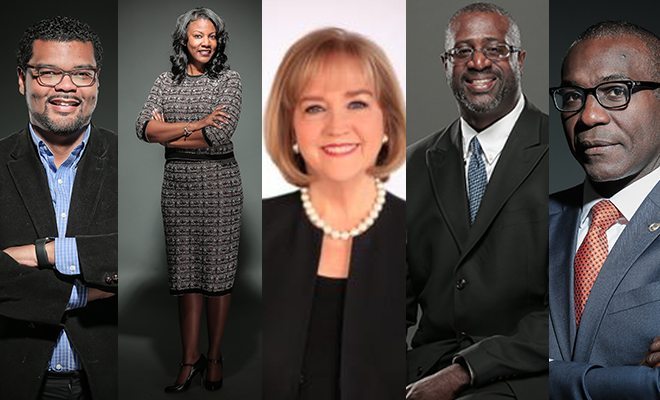
WHO GOT NEXT? St. Louis Mayoral Race 2017
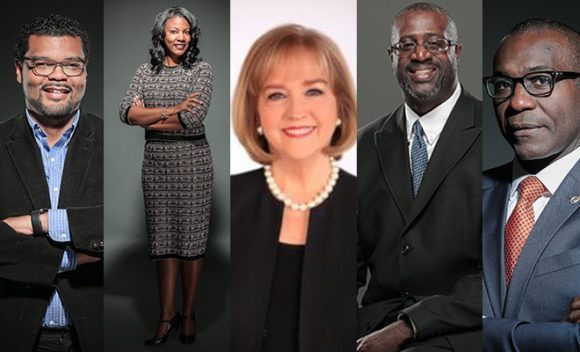
As we are welcoming a new president, governor, and other state elected o cials this January, St. Louis City has it’s on political campaign rivalry taking place for the position of St. Louis City Mayor. This March St. Louis will say goodbye to our 16-year long relationship with Mayor Francis Slay, but Who Got Next?
Well if you weren’t aware this election has a total of 7 candidates running, you read right 7. Yet, that’s not the kicker out of the 7 ve are African- American. Now should that make a di erence, on a smaller scale maybe no, but when you really look at the big picture and look at the epidemic nationally and locally African-Americans are facing the answer is YES! Though I can speak on this topic for days, I won’t touch it until after the election. I’ll just introduce you to some of the candidates, their policies, plans for our city if elected.
Now before we get into all the logistics of who’s- who. There are a few questions that need some answers, like what is a mayor, how does one become quali ed to run for o ce, what are the roles to keep a city a oat? All of these and many more are things to consider when choosing who will be responsible for the city you live in. Based o government experts and o cials the mayor is like the CEO of the city, he or she is in charge of leading and managing it. What buckets are there that in uence the successes of a city. Well you have economics, infrastructure, crime, employment,
and education, just to name a few. So, whom ever is elected they will be responsible for these and many items that a ect you and our city as a whole. To put it perspective, think of it like this, you have the choice to choose the CEO of the company you work for. Think of all the entities they are in control of, think of all the things you want to change but don’t have the voting power to do so. Now imagine what that would look like if you did.
*At time of interview Senator Nasheed was in the Mayoral race. She has since removed herself from the race and is currently endorsing Tishaura Jones.
Splitting The African American Vote
Lewis Reed: “It has been widely known in political circles and the community that I would be running for mayor
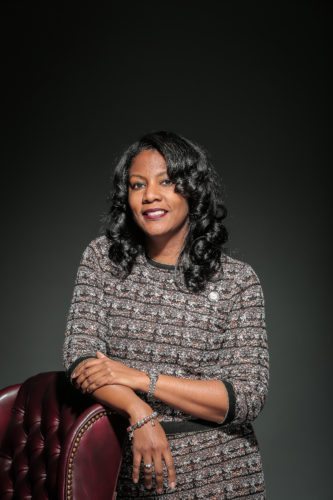
Tishaura Jones ©Delux Magazine 2017
a long time before the current mayor, Francis Slay, made his announcement in April that he would not be seeking another term. As your readers may know, I ran for mayor four years ago against Francis Slay and lost by a close margin. I ran four years ago because I believed then, as I believe now, that although this city has some good things going for it, there is a lot of change needed. That need for change is even more urgent now than it was four years ago. Four years ago, I challenged the incumbent mayor, who had the advantages that come with already being mayor and still had to raise and spend $3.9 Million in order to win. None of the other candidates in the race will be able to raise and spend that amount. Any conversation about rallying around a particular candidate has to begin with who has the best chance to win and actually become mayor. I have not taken a day o in those past four years and have worked hard to serve the citizens of St. Louis with the commitment that is necessary. Currently, in every poll that we have run or seen I have a lead amongst the entire eld of candidates. As the current President of the Board I am the only candidate that has experience on the executive side of city government, as I sit on numerous Boards that the Mayor sits on or has numerous appointees on. I see what needs to be changed, and I know that the Mayor’s o ce is the place to make those changes. I am the only candidate who received 45% of the vote four years ago. I am the only candidate with a campaign operation that has been preparing for this race for the last four years. I am the candidate with the most applicable experience and that is the most prepared to operate in the mayor’s o ce on day one. I am the candidate that has the best chance to win and is best positioned to bring immediate change and keep the wheels rolling at the same time. I would love the chance to work together with
all of the candidates as well as the readers of Delux Magazine to turn this city around and make it a great city for everyone. In the end, it will take leaders working together and involving and engaging the community to be a part of the solution”.
Tishaura Jones: “Good question. I’ve asked it myself. I hope that there will be some greater community consensus by the time your readers see this.”
Antonio French: “I welcome the support and endorsement of the other black candidates in this race, as I have supported many of them to get in their current positions. But I do think it is a mistake to lump all of us together simply because of our race. We have di erent ideas, experiences, and records. And frankly, we represent di erent communities. I know St. Louis like the back of my hand. I was born and raised here. I live in the heart of north St. Louis. I represent a poor area and have dealt with issues of poverty and crime my entire career. That, I believe, uniquely quali es me to deal with the most pressing issues facing our city today: reducing crime, the need for jobs and economic development, and refocusing our city’s attention to the neighborhoods most in need of investment.”
Jeffery Boyd: “Throughout St. Louis’ history there are numerous examples of races with diverse candidates where
a minority was elected by the voters. We must move past the idea that African-American candidates are somehow incapable of gaining support from all corners of our city. We need a Mayor that will be a voice for all St. Louisans and voters deserve an opportunity to explore the merits of each candidate regardless of race. My focus is on providing the best case for why a Boyd Administration is the right choice for St. Louis. My vision will secure a bright future for every family that calls St. Louis home.”
EDUCATION
Lewis Reed: “I believe it is a must that we have a strong and stable public school system. That’s why I made sure my appointee on the SAB board was a strong advocate for the children in our public school system, as
well as diversity and fairness in contracting. Our schools have improved and major projects have far exceeded expectations on minority inclusion. My appointee on to the Special Administrative Board has been the driving force behind the improvements we have seen so far. A leader has to know who to put in place to obtain the best outcomes. As mayor, I would work with the school district to make sure we as a city properly promote the good things about the St. Louis City Public School District. I believe we need to work with the school district in anticipating the mental health needs of some of our children and coordinate with the non-pro ts we contract with to provide wrap-around services to the families within our district. When the needs of the family are better taken care of, the ability of that child to learn in school increases dramatically. We must nd ways and incentives to involve parents in the learning experience of their children. We must provide safe routes to schools for our children that are able to walk to school, and easy to access transportation for those that live a far distance from their school. The most important step in solving a problem is prioritizing it. A high performing school district will be a top priority of my administration.”
Lyda Krewson: “The St. Louis Public Schools are governed by a separate board and there are limitations on
the direct improvements that any mayor can institute. However, the failure to use the mayor’s o ce as a bully-pulpit, and as a catalyst for educational
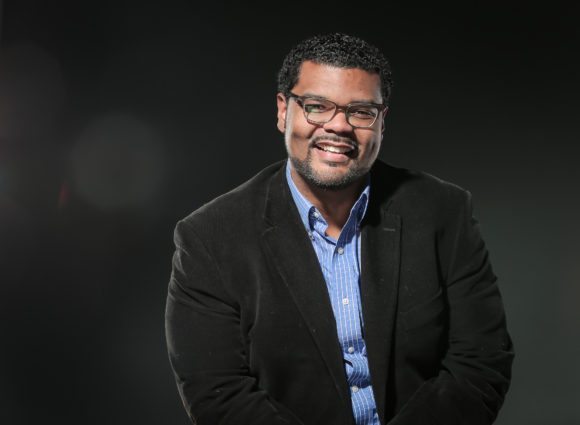
Antonio French
©Delux Magazine 2017
development, would be a huge mistake. Younger people wantto live in the City. And if we want them to stay, as their children grow, we must provide better educational opportunities. Period. That means supporting SLPS initiatives, and more closely-monitored charter schools, as well as encouraging parochial and private education. Today, St. Louis families have more opportunities for high- quality education than at any time in the last 25 years. This expansion of opportunities must continue in every neighborhood in St. Louis.”
Tishaura Jones: “I was a ‘deseg’ student. My 9-year old son is a ‘deseg’ student. I want Aden, a city kid, to
have the same – or better – opportunities as a 9-year old growing up in Chester eld or Clayton. I will meet Superintendent Kelvin Adams and with every public and private school principal and o er them partnerships with their city with a goal of removing every barrier to the urgent improvement of public education. I do, though, want to temper a part of your question. I believe that there are actually more good public school choices for city parents today, in district and charter schools, than there were years ago. I want to keep moving in that direction. As a legislator, I helped craft regulations that required charter schools to meet the same academic standards as district schools – or be closed. And several have.”
Jeffery Boyd: “As a parent of a child in St. Louis public schools I am committed to working with the St. Louis Public School District to provide a quality education to all students regardless of their zip code. I am also committed to working with our state legislators to identify more funding for our public schools.”
Community Engagement
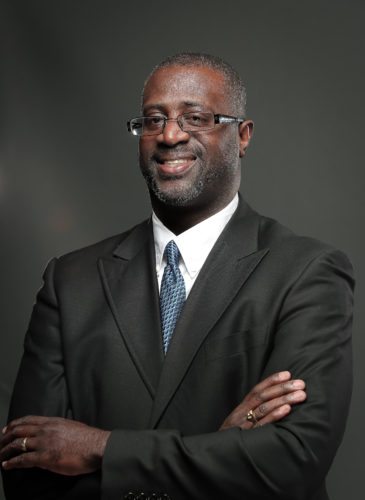
Jeffery Boyd ©Delux Magazine 2017
Lewis Reed: “I would like to see every business in the City of St. Louis thrive and have success. That would be a great thing. But, my priority is the citizens of the City of St. Louis. I have a long record of standing up for the community against contracts that are not in the best interests of the people. One of the more visible instances was when I stopped the sale of our city’s water department to a French corporation named Veolia Water. There were numerous well known political gures pushing in favor of the contract, I made a stand and eventually, after a lengthy battle, Veolia went away. It was a few years later that we saw what was going on in Flint, Michigan that underscored how important it is that the City of St. Louis remain in complete control of our own water system. It is more rewarding to have the support of the citizens of St. Louis City than anybody else. That’s why I make decisions in our best interest. I am running for Mayor because I care about this city. I am running because I want to make this a better city. As a husband, as a father, as a son, I want this city to be a better place to live for everyone. That’s why I ran for mayor four years ago. That’s why I am running now.”
Jeffery Boyd: “Community building takes a daily commitment to rise above the status quo and deliver real results for our neighbors. I will hold regular town hall meetings to have open discussion about the issues citizens are facing with employment and housing. I plan to create an advisory panel to challenge industry leaders in business, non-pro t, and the faith-based community to aid in executing innovative solutions.”
Economics
JOB CREATION
Jamilah Nasheed: “I’ve fought in the legislature to bring jobs to St. Louis and will continue to as mayor. The key is making sure we have an educated workforce. When businesses are look to relocate here, they need to know that they will be able to hire skilled people who can do their jobs well. That means investing in our schools and making sure children are learning and graduating ready to contribute. We need to focus on STEM learning and positioning St. Louis to compete with not just the rest of our state, region or country – but the rest of the world. We also need to attack the problem of social promotion. Tomorrow’s workers need the knowledge and skills to do the job. That means treating our students like individuals – not a monolithic group that we simply push through the system. If students need more time or additional assistance, our schools need to give it to them. We need to position every one of them for success, whether it’s by preparing them to go to college, giving them the trade skills we need to start new projects, or positioning them for a lifetime of entrepreneurship and making their work economically stable. Finally, we also need to ensure that every member of our community is allowed to nd meaningful employment. I worked with Mayor Slay to “Ban the Box” on St. Louis City job applications in 2014. Earlier this year, I worked with Governor Nixon to do the same thing for state applicants. Those are good steps, but we need to go further. We need to expand that opportunity to jobs in the private sector. Every application deserves a thorough look and every person deserves a chance to contribute to our city.”
TOURISM/REVENUE/PROJECTS
Jamilah Nasheed: “We need to do everything in our power to keep St. Louis a world-class city. I’m focused on uniting our citizens to make life better for every
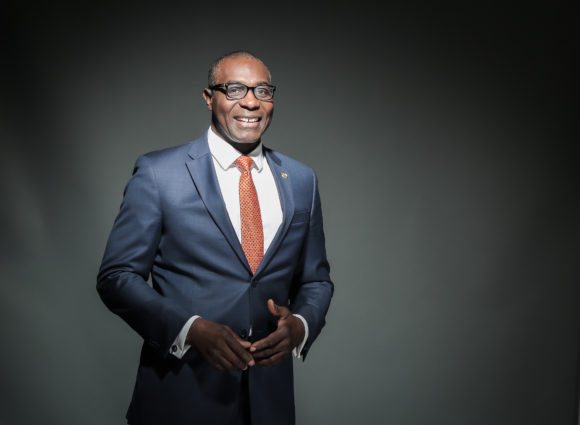
Lewis Reed
©Delux Magazine 2017
person in St. Louis. That means promoting community programs and making the most of our city’s existing assets. Revenue from tourism is a boon for the bottom lines of many of our city’s businesses and we’ll continue to show St. Louis o to visitors from across the globe. However, we can’t let those e orts take precedence over addressing the decay that’s sprouted up in many parts of our city. By xing our streets and putting our existing and LRA properties back on the tax rolls, we’ll take a big step toward the type of progress our city needs.”
Lyda Krewson: “New projects, whether new construction or renovations, should only receive the minimum incentives absolutely required to allow the project to happen, and only for projects that create new jobs and revenue in the city.”
Jeffery Boyd: “There are three fundamental tests that will guide my economic development determinations. Does the project create good paying jobs for local citizens? Does the project provide return on the investment and optimize any shared revenue opportunities to re-invest to the city? Does the project align with the overall strategic plan for St. Louis? If these tests are not satis ed it would be di cult for the project to have my support as Mayor”.
ALLOCATED FUNDS/UNDERDEVELOPED AREAS
Jamilah Nasheed: “I’ve spent a number of years ghting to bring state grants back to St. Louis, and I’ll continue to do so as mayor. It’s important that we take advantage of the money that’s out there for our schools, our transportation projects, and our community organizations. There are so many groups in St. Louis doing innovative things to rebuild our city. I want to make sure they have the funding, support, and legal tools they need to lift people up”.
Lewis Reed: “I have heard of many instances where a developer or business came to one of the Mayor’s departments looking to do business north, but were in turn steered south. The City of St. Louis will never be great until we have both sides of our city active with development and business, and bringing in tax revenue to support city services. This is the message I gave four years ago, when our campaign talked about One St. Louis. I gave this same message all across the city. People in south St. Louis and the central west end should want to see north St. Louis developed, because the increase in tax base will help everyone. As Mayor, I would get to set the strategic direction of the city and the allocation of resources. One of my primary objectives would be rebuilding north St. Louis, which will in turn help the entire city prosper. I would put people in place in the right positions that are committed to seeing this reality. The same way I did when I became President of the Board of Aldermen. I set up the aldermanic committees to make sure that there was appropriate representation on each committee. If a committee deals with a problem that is disproportionately affecting North St. Louis, I put a majority of aldermen from North St. Louis on that committee. You have to put people who are directly affected by a problem in a position of authority to do something to fix it. It is important that the next mayor is, like I am, independent from the current regime and free to bring in people who are truly seeking change in this city. Four years ago, my campaign started with the slogan “Building One St. Louis.” North, South, West, Central all need to be given the attention necessary to thrive. That is still my goal today, and I am glad to see that others have decided to follow me and are using the same slogan I have used for four years in this mayor’s race. But you have to have the right person in the lead to make this goal a reality. I have a history of unifying people from different walks of life around a common goal. I will do the same as mayor. A citywide leader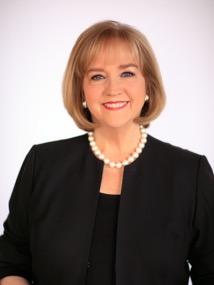 has to look for and capitalize on opportunities to invest in our city and our residents. When big projects come before the city I make sure that jobs and money go to minorities and residents of the City of St. Louis. A big project does our city no good if it doesn’t provide jobs for our residents. As a leader, you have to take the opportunity to provide jobs and opportunities to your constituents. You can’t just stand on the sidelines and say “no” when opportunities are available to put people to work. It is also important that the next mayor has the experience to create opportunities and grow resources. That way it will not be about taking away from another part of town, but also about growing our tax base and directing it where the most need is.”
has to look for and capitalize on opportunities to invest in our city and our residents. When big projects come before the city I make sure that jobs and money go to minorities and residents of the City of St. Louis. A big project does our city no good if it doesn’t provide jobs for our residents. As a leader, you have to take the opportunity to provide jobs and opportunities to your constituents. You can’t just stand on the sidelines and say “no” when opportunities are available to put people to work. It is also important that the next mayor has the experience to create opportunities and grow resources. That way it will not be about taking away from another part of town, but also about growing our tax base and directing it where the most need is.”
Lyda Krewson: “All areas of our city deserve to have their needs met through a fair and equitable budgeting process. This is more than simply ‘ ltering back’ tax dollars. We must meet the needs in all of
our neighborhoods, especially public safety needs. I have observed Aldermanic representatives from North and West St. Louis make strong, e ective cases to direct resources into their wards. I will work with all neighborhoods, and Aldermen/women to meet those needs. I will also encourage more budget meetings to be held in neighborhoods so that we can hear directly from residents and businesses.”
Tishaura Jones: “It is unfair – and short-sighted – to allocate public investment or target city services using any criteria other than real, actual need. By that measure, it is clear that subsidies for stadiums
in Midtown make much less sense than investment in transportation infrastructure that connects people to their jobs and spurs additional development. As mayor, I will examine every request for public subsidy to determine if granting it helps the neighborhood it is in and the city as a whole, and if it is consistent with my pledge to view every city action through the lens of racial equity.”
Antonio French: “This right here is exactly why I am running for mayor. This city has to nally start seeing the needs of our entire city. This city cannot be successful if over half of our neighborhoods are dying. This city cannot be successful if over half of our population feels unsafe, has no job and no hope. The rst thing we must do is no longer leave it up to developers to set our economic development agenda. As mayor, I will use the resources of the city’s development agencies to identify the strategic needs of the city as a whole. We will then set out a plan to use our available incentives — such as TIF, tax abatement, grants, and loans — to stimulate economic activity in the neighborhoods that need it most, where we will get the biggest bang for our buck. This is not only just and equal, it’s just smart economic policy.”
Transportation
Jamilah Nasheed: “Investing in infrastructure, like a North-South MetroLink Expansion, will have an enormous impact on revitalizing the neighborhoods north of Delmar and rebuilding our communities. If we make public transportation more accessible to more people, we improve both our workforce and our consumer base – strengthening jobs and businesses alike.”
Lewis Reed: “I spoke about this on record over two years ago and I have supported it as a member of East West Gateway Council of Governments. In my Letter to the Editor to the Post-Dispatch on June 12, 2014, I stated it as a priority then. We have been looking at this for a long time. The more transit options we have the better. People from both ends of town would have more viable work opportunities and better access to healthcare with the increased mobility that it would provide. I believe more young people would stay in and move to St. Louis if we have better transit options. Widely available public transportation is a must for a successful city. We have to come up with a way to pay for it that does not create a burden on or take resources from our residents, particularly the young and the elderly.”
Lyda Krewson: “I support the North-South route; I will also work with the County Executive to support a more comprehensive expansion of public transportation”.
Antonio French: “I, like many other ‘northsiders’, have been waiting on this for 20 years. That being said, the devil is in
the details. We need to see a route that makes sense. We need to see a funding mechanism that does not rely too heavily on a regressive form of a taxation such as sales tax. And we also need to see a regional solution in which our partners in neighboring counties are also helping to fund it. That will require a level of cooperation that we have not seen between the current mayor and the St. Louis county executive. It would be a priority of mine to improve that relationship.”
CRIME
Jamilah Nasheed: “I’ll improve the relationship between law enforcement and the communities they work in. I want to increase trust on both sides. The rst step is providing all of our o cers with body cameras. Cameras will increase security for our o cers and accountability for community members. This accountability will make us all safer and more ready to trust each other. The second step is increasing police pay and resources. Our homicide division is woefully underfunded and we need to make sure we have the detectives and tools necessary to do the job. We also need to reintroduce the anti-gang unit so we can investigate and break down these groups. Similarly, we need to increase the safety and compensation of our o cers. If our o cers are leaving to go work in areas with higher pay, we won’t be able to maintain a strong, well-trained force. I’ll use my experience at the state level to push for legislation that improves compensation for our city’s force and breaks down disparities for emergency responders. Finally, I’ll work to x the problem at its root and deter potential o enders. By empowering our police to solve crimes and catch criminals, we’ll ensure others aren’t emboldened to break laws. By fixing our education system and creating new jobs and better opportunities, we’ll dissuade young people from ever entering a life of crime. Working together, we’ll make St. Louis safer and stronger for all of us.”
Lewis Reed: “I have stated for many years, decreasing the crime in our city must be a top priority, and the Mayor’s o ce is the o ce that has the most control over that. We have to nd ways to provide the resources the police department needs, whether it is higher pay or better technology. We have to devote more energy and manpower to solve violent crimes, especially in the more underserved sections of the city. Everyone deserves equal protection and every victim is important, whether it happens near the Ball Park, Gravois Park, or Walnut Park, every violent crime must be taken seriously. We have to do what is necessary to make our neighborhoods safe. As Mayor I would be in a position to measure all of our youth and family services to see what is working and what is not working, so that we can make the best use of the resources we have. We will need a Chief of Police that is completely committed to and capable of reducing the numbers that have continued to rise over the last three years, but it is up to the Mayor of the city to demand accountability and make sure the commitment is there to make everyone feel safe in this city. I will not tolerate poor performance and I will not accept any excuses when it comes to the safety of our citizens. Every neighborhood should feel safe and we can’t prioritize one part of the city over another. I won’t rest until everyone in this city is living in a safe neighborhood.”
Lyda Krewson: “Neighborhood safety is Job 1 for the new Mayor. Increased gun violence in St. Louis has cast a pall over our City neighborhoods. If the incidence of crime is to be reduced in a meaningful way, the City must battle on multiple-fronts and commit the resources that are required. That means expanded resources for Police, for Crime Prevention, and in the care of Victims. And all of these e orts everyone must be undertaken with a full commitment to diversity, justice, equity, and preservation of civil rights. On the rst day of my administration, I will form a Working Group to urgently combat violent crime in our city. That group will include police, prosecutors, judges, victim advocates, the personnel department, and others, who will implement the following plan and provide insight and advice as we move forward. We must have a city where getting a job is easier than getting a gun. As mayor, I will work tirelessly to address the root causes of crime with compassion and mercy.”
Tishaura Jones: “We need day to day leadership. Did you even know that Chief Dotson has a boss? I will recruit and hire a Public Safety director with the experience and leadership to use every department of city government, starting with the police department but not stopping there, to make every neighborhood safer.”
Antonio French: “I’ve put together a detailed plan at www.comprehensiveplan.org outlining my strategy on reducing our city’s high rate of homicides and shootings. It involves making major investments in the 15 neighborhoods that account for over 60% of the violent crime. We have to change the conditions in these neighborhoods that lead to the violence. This will also address the second item, which is making investments in poor neighborhoods to help transform them into places of opportunity and growth.”
Affordable Housing
Tishaura Jones: “We cannot have a successful city if the blueprint for improvement is to displace current residents. Every publicly funded project should– and will have an agreement between the developer and community groups requiring speci c amenities and mitigations to the a ected neighborhoods. I want to also use your question to say something about the city’s 161,000 renters (more than half the city’s population), many of whom are particularly vulnerable to “gentri cation.” All of them – many of them poor and with less education, some of them immigrants and millennials – have rights. It is in our city’s strong interest to protect and enhance residential property values by paying much more attention than we do now to landlords – and their tenants – whose conduct erodes our safety, and to ensure that renters have a stronger voice in city government.”
Jeffery Boyd: “For the past 24 years I have personally developed a ordable housing so this issue is very important to me. I think that a ordable housing is just one part of a greater solution. I would support legislation that required developments to include a percentage of a ordable or workforce housing. My citywide comprehensive redevelopment approach considers the following: Mixed Income Developments the Impact of Gentri cation Home-Buyer’s Assis- tance. These key areas of focus would aid in developing a multi-year comprehensive plan city-wide to address a ordable housing long-term.”
Gun Control/Public Safety
Tishuara Jones: “We don’t need “plans.” My approach is more practical. We need day to day leadership. Did you even know that? Chief Dotson has a boss? I will recruit and hire a Public Safety director with the experience and leadership to use every department of city government, starting with the police depart- ment but not stopping there, to make every neighborhood safer.”
Antonio French: “As mayor I will strongly advocate for smarter gun laws in Missouri, we must also face the fact that it is not simply the presence of guns (in fact, there are far more guns in St. Louis County) that leads to the higher rate of violence and murder. Concentrated poverty, fewer economic opportunities, a failing education system, and a criminal justice system that too many people have lost faith in and feel they must handle situations on their own — this is why we see much more violence here than in St. Louis County (although conditions in north County seem to be catching up with the city in many of those negative categories). When we improve these conditions, we will see our crime rate drop – as it did during better economic times. Go to www.comprehensiveplan.org to read my plan for how to get us there.”
Youth engagement
Jamilah Nasheed: “Today’s children are the men and women who will be leading our city tomorrow. These young people need a safe place to play, learn and release their energies. We also need to renew the focus on soft skills like communication and professionalism that will prepare students to succeed in the workforce. Education has always been one of my top priorities as an elected o cial. Engaging youth in community events goes hand in hand with that. Together, they give kids the skills and opportunities they need to grow into successful adults. As mayor, I’ll put in place programs to gure out what works and what does not for our youths. I’ll convene an advisory committee to inventory all of the recreational facilities in the city. Their reports and audits will help focus our energies and funding where we need upgrades the most.”
Tishuara Jones: “This is a personal issue for me. That “youth in the community” includes my 9-year old son, Aden. I’ll start by expanding something I have already begun as Treasurer: a pioneering program to promote nancial literacy for the city’s schoolchildren and families through the “College Kids” Children’s Savings Account Program. We currently serve 3,500 rising kindergartners, seeding their college funds with $50 each to help families jump start their college savings. I want to add additional grades and preschoolers, eventually ending up with a comprehensive program that funds two years of college for all graduating seniors while teaching them how to bank, save, borrow, and invest. I want more robust funding for the St. Louis Youth Jobs program. And here’s an even bigger thought: The city spends $16 million a year to keep people, many of them young people and most of them repeat o enders, inside the rundown Workhouse up on Hall Street. What if we closed the place and spent some of the same money on? programs, like recreation centers and jobs training, to keep people out of the criminal justice system in the rst place?”
*At time of interview Senator Nasheed was in the Mayoral race. She has since removed herself from the race and is currently endorsing Tishaura Jones.
- Aziel Jackson – In His Own Words: Making His “FIRST MOVE” in Fashion - Thursday, March 14, 2024
- Miami Dolphins’ Stand-Out Terron Armstead Continues To Win In The Art of Giving-Back - Monday, June 5, 2023
- Delux Feature: Celebrity Barber and Fitness Trainer, Lawrence Roebuck, Shares His Tips for a Healthier Lifestyle During Stress Awareness Month - Monday, May 8, 2023






